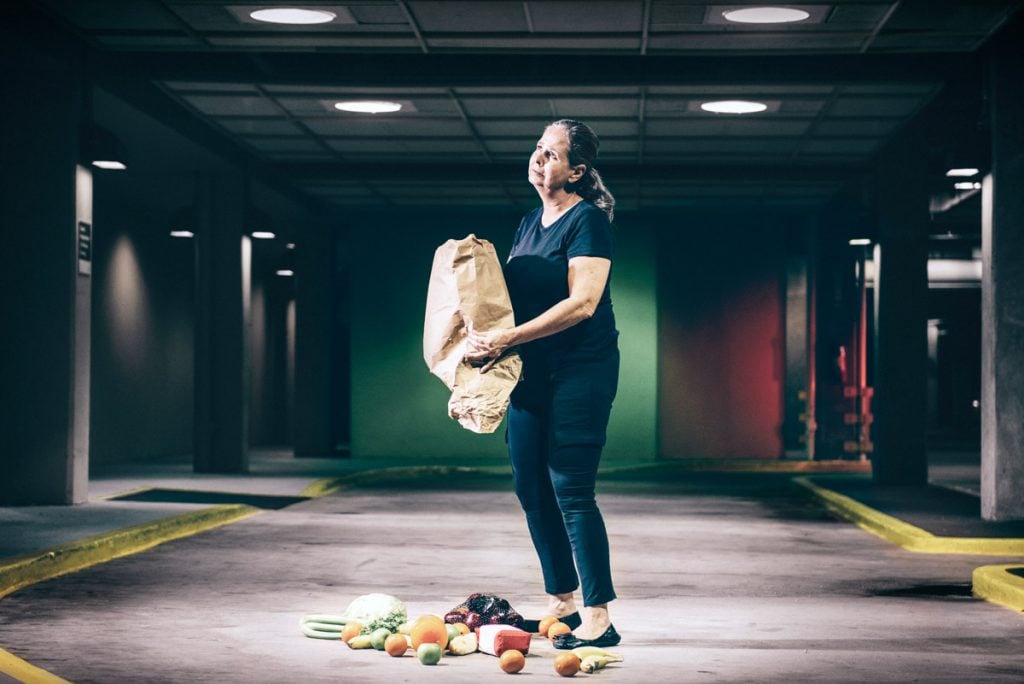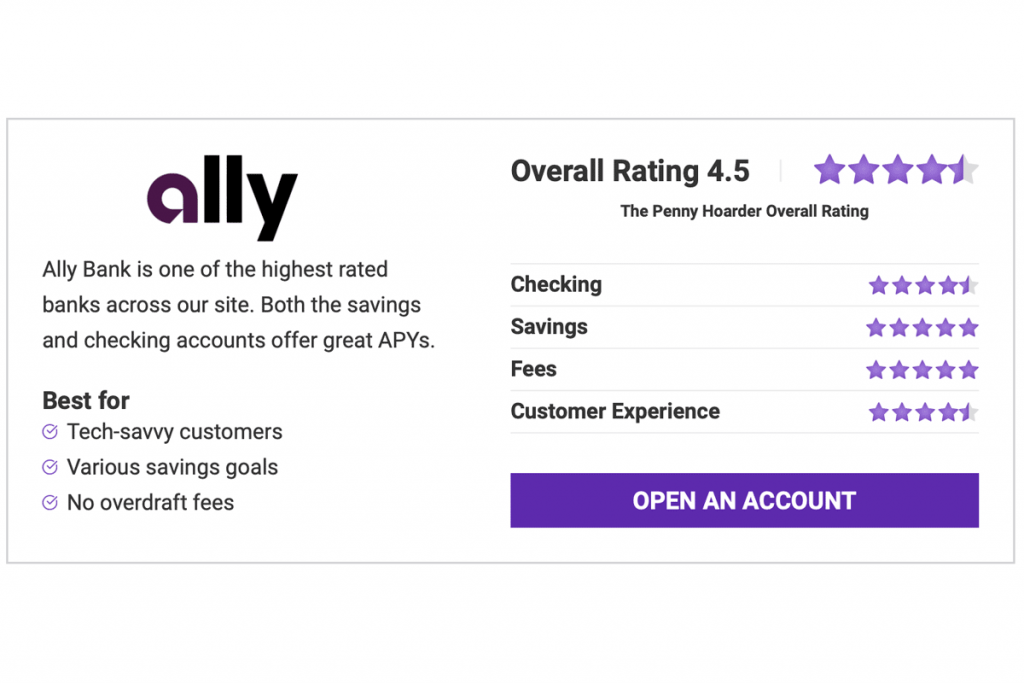It’s not your imagination. Groceries really are getting more expensive.
You’re seeing it at the checkout counter. Food prices just rose by 0.5% in a month, and they’ve gone up by nearly 2.5% over the past year, according to the most recent consumer price index. The price of beef is 3.3% higher than it was a year ago, according to the Washington Post.
Blame it on a mix of rising gas prices, a spike in commodity prices, increased imports from China and crop damage in the Midwest, according to reports from NBC and other news outlets. All those costs get passed on to consumers. With gas prices only expected to rise, grocery prices are expected to remain high for at least the rest of the year.
No wonder you’re feeling squeezed. But we have some tips for you budget-conscious grocery shoppers that’ll save you actual money.
1. Check Unit Prices
One common grocery shopping misconception is that bigger is always better — or, in this case, cheaper. But that’s not always the case.
Rather than automatically stocking up on bulk supplies of toilet paper, peanut butter and soup, check the items’ unit prices first.
There’s no need to do any math here. The unit price is often located on the price tag affixed to the shelf below the product, with phrasing like “$0.59 per ounce.”
You just might find that the smaller item is a better buy (and a whole lot easier to tote home and store).
2. Perennial Useful Advice
OK, here’s three in one. You’ve heard these oldies-but-goodies before, and they still apply:
- Skip the name-brand products. Grab the store brands or generic brands instead.
- If you’re not going meatless altogether, at least skip the expensive cuts.
- Add more beans and vegetables to your diet; frozen veggies are cheaper.
3. Get Paid Every Time You Buy Groceries
No matter how strategic you are, groceries still account for a good chunk of your budget. Everybody’s got to eat. You may as well earn a little money back while your groceries are being bagged up.
A free app called Fetch Rewards will reward you with gift cards just for buying staples like toilet paper and more than 250 other items at the grocery store.
Here’s how it works: After you’ve downloaded the app, just take a picture of your receipt showing you purchased an item from one of the brands listed in Fetch. For your efforts, you’ll earn gift cards to places like Amazon or Walmart.
You can download the free Fetch Rewards app here to start getting free gift cards.
Over a million people already have, so they must be onto something.
4. Pocket up to 5% Cash Back at the Grocery Store
If you’re not getting rewarded every time you go to the grocery store, you’re missing out on extra money.
Aspiration lets you earn up to 5% cash back on your debit card purchases. For example, right now it gives you 0.5% cash back at Walmart and Target, and 5% cash back at places like Brandless. (For a full list of cash-back percentages, visit Aspiration’s website.)
It takes just five minutes to sign up for a new debit card with the Aspiration Spend and Save account.
Never leave extra money behind at the grocery store again.
5. Shop Groceries Online (or At Least Pantry Items!)
If you have a massive shopping list, grocery shopping can easily become overwhelming. Next thing you know, you’re lugging out hundreds of pounds of groceries — or at least that’s what it feels like.
Make life easier for yourself (and your arms) by buying your pantry and dry goods online — and earn cash bonuses along the way.
A free website called Rakuten has connections with more than 2,500 stores, which means it can give you a cash kickback when you shop at one. When we checked, we found deals at Amazon, Safeway, Sam’s Club, Boxed and Walmart.
It takes less than 60 seconds to create a Rakuten account. All you need is an email address. Plus, if you use Rakuten to earn money back within the first 90 days of signing up, it’ll give you an extra $10.
Now you don’t have to worry about fitting that 36-pack of toilet paper in your trunk or hauling a box of cat litter across the store. Just have someone deliver it to your door and earn cash back along the way!
6. Stop Overpaying for Groceries You Order Online
Do you pick up groceries at Walmart after shopping online first? Wouldn’t it be nice if you got an alert any time you’re shopping on Walmart.com and you’re about to overpay?
That’s exactly what this free service does.
Just add it to your browser for free, and before you check out, it’ll check other websites, including Walmart, eBay and others to see if your item is available for cheaper. Plus, you can get coupon codes, set up price-drop alerts and even see the item’s price history.
Let’s say you’re shopping for a new pair of shoes, and you assume you’ve found the best price. Here’s when you’ll get a pop up letting you know if that exact pair of shoes is available elsewhere for cheaper. If there are any available coupon codes, they’ll also automatically be applied to your order.*
In the last year, this has saved people $160 million.
You can get started in just a few clicks to see if you’re overpaying online.
7. Cut Your Food Budget by Planning Ahead
Groceries are a huge part of everyone’s budget, so they’re a big target for savings. Try preparing for the week ahead with some meal planning.
This goes beyond just making a shopping list. Real meal planning helps you save money because it helps you use what you buy, preventing food — and money — waste. It also prevents you from spending extra cash on emergency lunches or late-night takeout.
First, figure out how many meals you’re responsible for making every week. If it’s just you, your answer might be 21: seven breakfasts, lunches and dinners. If you have a family, count meals per person — a dinner for three people counts as three dinners, even if you all eat the same thing.
Now figure out how much food you’ll need to buy to make it until your next grocery trip. If you buy the same items repeatedly, you know which ones to stock up on when they go on sale. Stocking up on sale items also helps you freeze meals for the future. If there’s a way to buy in bulk and prep the foods you eat the most often, do it!
8. Get an Extra $225 to Use Toward Groceries This Month
If we told you that before you head to the grocery store, you could get paid to watch cooking videos on your computer, you’d probably laugh.
No way, right? But we’re serious.
A website called InboxDollars will pay you to watch short video clips online. One minute, you might watch a chef teach you how to make fudge brownies, and the next, you might get the latest celebrity gossip.
All you have to do is choose which videos you want to watch and answer a few quick questions about them afterward. Brands pay InboxDollars to get these videos in front of viewers, and it passes a cut to you.
Unlike other sites, InboxDollars pays you in cash — no points or gift cards. It’s possible to earn up to $225 per month watching these videos, which could make a serious dent in your grocery bill.
It takes about one minute to sign up, and you’ll get a $5 bonus to get you started.
The bottom line is, prices at your grocery store are going to keep going up. Like it or not, that includes the price of everything you eat.
If you start following at least a couple of these tips, you’ll put yourself in a better position to handle rising grocery prices.
Any of these strategies will help.
Just pick one to start with.
Mike Brassfield ([email protected]) is a senior writer at The Penny Hoarder. He’s a dad so he spends a lot of time at the grocery store.
*Capital One Shopping compensates us when you get the extension using the link provided.
Credit: Source link














